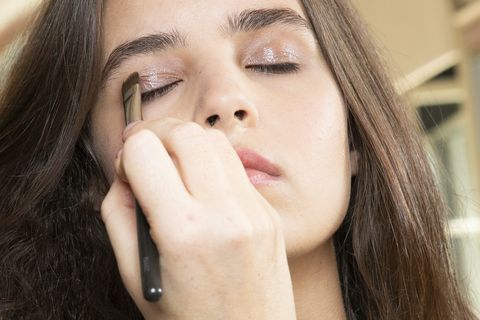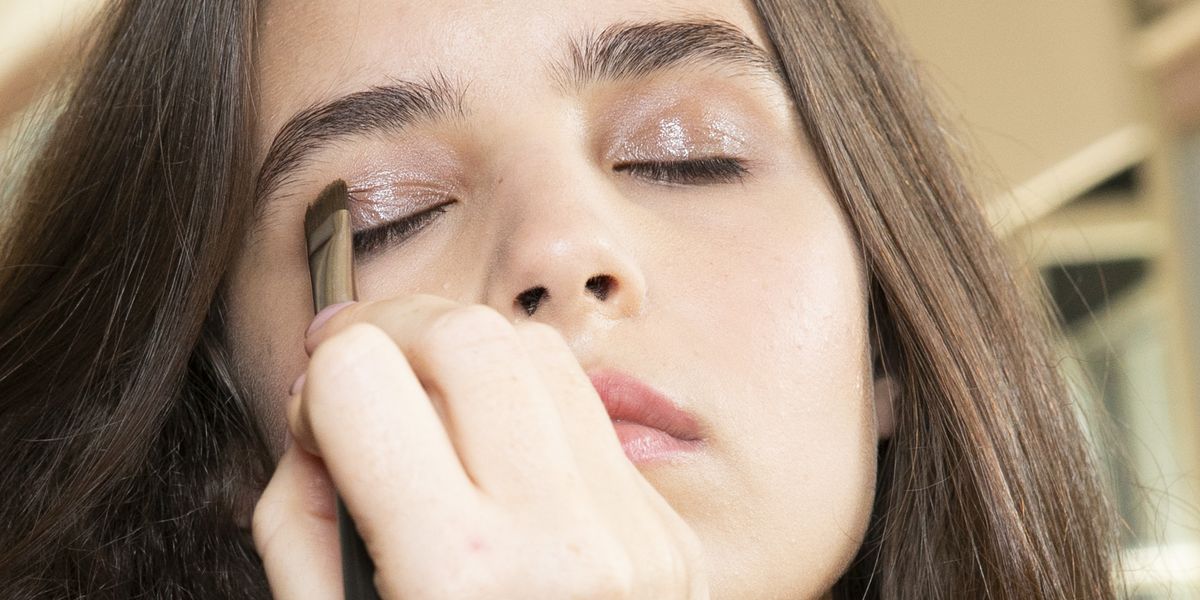
Rosdiana CiaravoloGetty Images
One time, when I tried a new liquid foundation, my skin broke out in hives on contact. Around my nose, the skin was raised, red, and painfully itchy. I’ve come to realize that my skin, dosed-up with years of prescription acne-fighting topicals, is really sensitive. One wrong move and it’ll have a reaction. Considering all the makeup and skincare I test out while working in the beauty industry, it’s difficult to pinpoint exactly causes outbreaks. There are, however, precautions to take.
I learned some important tips from Joëlle Nonni, the Skin Health Education Workshop Manager at Avéne’s hydrotherapy center. All of the center’s patients—who stay at the facility located in the bucolic hills of southern France for three weeks at a time—experience some skin issue, from severe cases of eczema, to psoriasis, dermatitis, and others. As part of their treatment, they can also take makeup classes from Nonni’s: medical makeup, which covers concealing burns and scars, and regular sessions that cater to sensitive and healing skin.
“If you don’t have great skin, makeup doesn’t fix that,” Nonni emphasizes, menaing skincare should be your first line of defense. That being said, she does break down smart ways to navigate your beauty bag for a clear and calmed complexion.
Prepping the skin pre-makeup is the most important step.
“If you have very sensitive skin, you have to moisturize very well,” Nonni says. And, it goes beyond slapping on some hydrator. She suggests spraying thermal water, which soothes and heals irritated skin, directly where you plan to apply makeup. You can also spray it onto tissues and do a compress, of sorts, on your face (Nonni suggests leaving it on for 15 minutes). “You can stop the evaporation of the [thermal] water and increase hydration of the skin in a natural way,” Nonni explains, adding that circular movements are ideal. Then, follow with a gentle moisturizer
Mineral and organic makeup isn’t always better.
While you might assume makeup labeled “all natural” would automatically soothe sensitive skin, you still need to take a close look at the ingredients. “If there’s a lot of perfume and three, four, five, or more preservatives, it’s not so safe anymore,” Nonni warns.
Solid makeup is generally safer.
“Stick or compacts formula are easier to create without too many preservatives because they don’t contain water which harbors bacteria,” she explains.
Pay attention to the expiration dates.
An often-overlooked element of a beauty product’s packaging is the tiny symbol that tells you “6M” (six months) “12M” (one year), etc.—that’s how long after it’s opened it will last. Pay attention and make sure to replace your makeup when it expires. “It’s quite simple, but it’s important,” Nonni stresses. Time to purge that liner you’ve been loyal to for five years.
Try a BB cream instead of heavier foundation.
“We know that pigments increase the dryness of the skin. Because BB cream contains fewer pigments, it can be more effective,” Nonni says. Another big tip? Use powder sparingly, as it also sucks skin dry, which can exacerbate sensitivity. If you do rely on powder, tap off any excess before applying to be sure you’re using the bare minimum.
Sponges are the best makeup applicator—but beware of latex!
“We love sponges because if skin is textured, the sponge can leave a very smooth finish,” Nonni says, nothing that dabbing is especially effective for covering wrinkles. That being said, you have to be conscious of your sponge’s composition. It’s important to avoid the common allergen latex, which can trigger atopic dermatitis.
Highly-pigmented makeup is more likely to cause a reaction.
“Eyeshadows have a lot of pigments, and if you have more colors, you can have more allergies,” Nonni says. She adds that more neutral tones like beige and bronze rarely elicit bad reactions, but blues, greens, purples, and other more saturated hues “are not so safe.” Same goes for lipsticks that are bright red and deep purple: “There’s a lot of pigment, which dries the lips,” she says.



